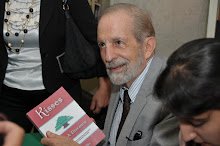NO
PLACE TO BE
The reaction to the release of Edward Snowden's NSA
documents, and Glenn Greenwald's subsequent publication of them, exemplifies the
number one tactic used by our lackey media when the government is caught
red-handed: change the subject. The effort to convince us the book is old hat is
intended to prevent our finding out the depth of pervasiveness the surveillance
state commands.
When the story broke, Snowden was quickly characterized
as unstable and narcissistic, demeaned as a high-school dropout, a low level
functionary, a lad with identity problems, a traitor and a criminal. Why would
he do such a thing, became more important than the spying he exposed. The
bombshell Snowden felt compelled by conscience to release became a relatively
inconsequential under story—exactly what the government desired. Greenwald, in
virtually every US interview he granted, was treated in a hostile fashion, made
to justify whether he was truly a "journalist" (an attempt to remove
the First Amendment protections afforded the press). And incredibly, investigative
journalism aside, he was asked if he didn't think he also should be prosecuted
for his role in the revelations. Other "unbiased" pundits and
politicians stated outright that he should go to jail.
Another reason to read this book is to understand and
reinforce in one's mind how deeply our devolution into a total security state
has progressed. It is now nearly impossible for any governmental excess, made
in the name of fighting terrorism, to be opposed. Those with the power of
warrantless spying on our everyday lives, even absent suspicion of wrongdoing,
have become arrogant, disdainful, and even flippant about trampling our civil
rights. They are like players in a giant video game, continually vying to open portals
and advance to the next level of snooping.
Reading through the released NSA documents one gets the
sense that people put in these hi-tech surveillance positions have assumed that
their membership in this "chosen" elite empowers them to unilaterally
decide that all information we generate can be collected and stored. NSA has
decided their goal is, in the parlance of spydom, to "sweep it all
up." Not as well known is that these hackers also engage in dirty tricks
such as jamming personal computers, denial of service, and the implanting viruses
and stealth programs in the personal, corporate, or governmental devices of
whomever they choose. They can then use the information to create psychological
profiles of whom they choose, with the primary candidates being those who have
known disagreements with official governmental policy. The exercise of free
speech in legitimate protest marks a person as one to be spied upon--with complete
anonymity and impunity.
Greenwald presents many examples that show how the media has
become complicit in taming the masses by focusing their coverage on the consequences
of participating in protests, rather than the reasons for such demonstrations. And
they implicitly justify the heavy-handed response by militarized police against
protest—reinforcing for viewers the frightening repercussions for anyone who
dares think outside of approved governmental norms.
By not criticizing the misuse of laws that have been
enacted to allow our government to fight "terrorism," the very people
who are supposed to be the guardians of the public trust are helping the administration
change the focus, dilute the real story, and mute protest.
Greenwald also gives examples of how dissenters can
easily be targeted, detained or harassed, without probable cause and placed in
the position of having to prove their innocence (quite the opposite of our
Constitutional guarantees). He maintains that whistle blowing has been greatly
deterred by the administration's threats of punishment, also loudly broadcast
by the media. Ironically, the penalties are not for the wrongdoers who have
clearly broken the law but for those, such as Snowden, who dare expose the wrongdoing.
The incessant focusing on the act of revealing inside information, rather than
the content of such revelations, aids and abets the real villains of the piece.
Thus the demonizing of Snowden and Greenwald, whether willful or not, produces exactly
the effect the government desires—focusing the discussion on the whistle
blowers rather than their own misfeasance.
NO PLACE TO HIDE
is a must read for those who are not content to swallow whole the government's rationale
for its imposition of the security state. "You have nothing to fear if you
have nothing to hide," parroted by politicians and pundits alike, is but a
diversionary tactic meant to put everyone on the defensive. We are being persuaded
to examine our actions rather than those of our elected representatives. The
state is thus able to escape transparency and violate civil liberties at will. As
Greenwald points out, study after study demonstrates that when people know they
are being watched they behave differently and become more compliant. In other
words, Big Brother is watching and you should act accordingly. And the number
of media people who've repeated this fallacious mantra is astounding, revealing
just how much trouble we really are in.
Greenwald's writing is clear, concise, fluid and
engaging. If alarm bells don't go off after reading this expose, then we don't
have a chance to survive as a freedom loving nation. The barbarians are not at
the gate, they are already wreaking havoc on our democracy from the inside.




